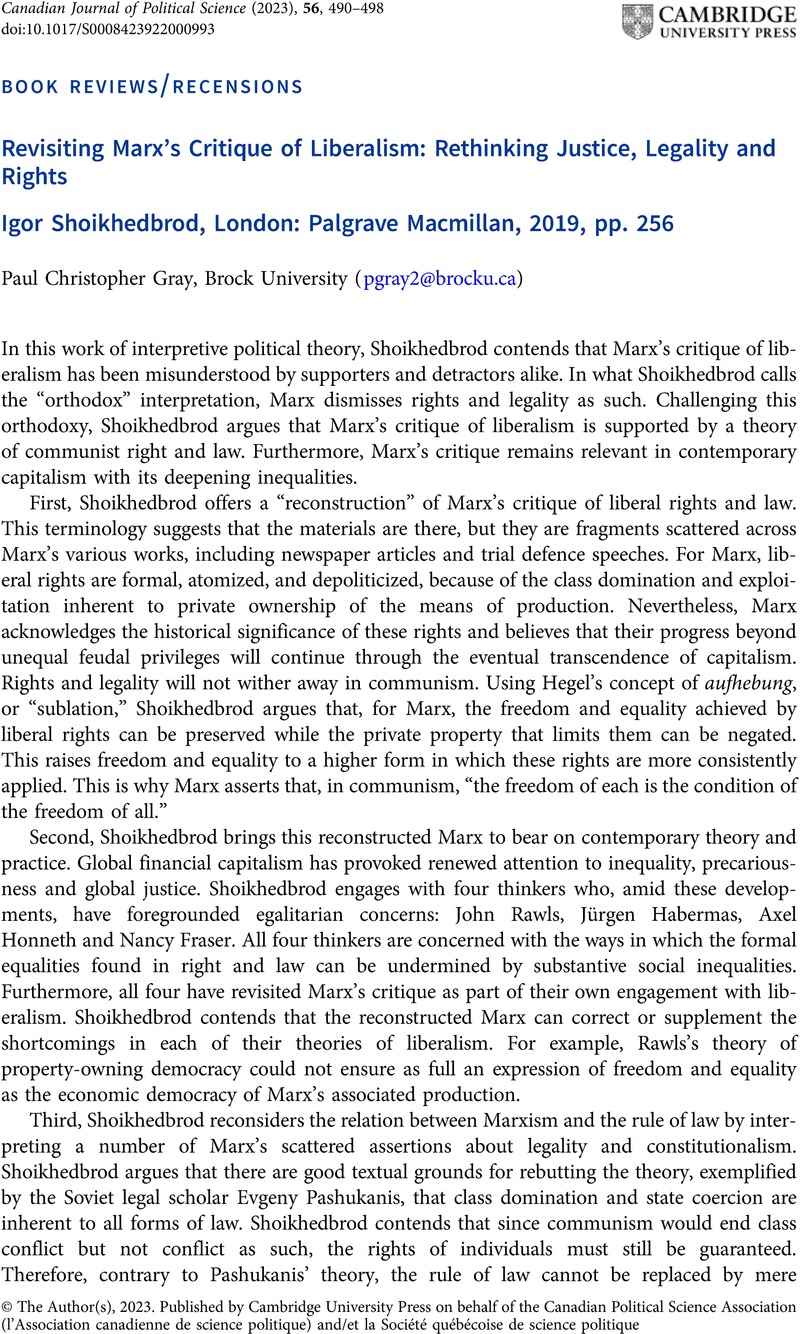No CrossRef data available.
Article contents
Revisiting Marx's Critique of Liberalism: Rethinking Justice, Legality and Rights Igor Shoikhedbrod, London: Palgrave Macmillan, 2019, pp. 256
Review products
Revisiting Marx's Critique of Liberalism: Rethinking Justice, Legality and Rights Igor Shoikhedbrod, London: Palgrave Macmillan, 2019, pp. 256
Published online by Cambridge University Press: 03 February 2023
Abstract
An abstract is not available for this content so a preview has been provided. Please use the Get access link above for information on how to access this content.

- Type
- Book Review/Recension
- Information
- Canadian Journal of Political Science/Revue canadienne de science politique , Volume 56 , Issue 2 , June 2023 , pp. 490 - 491
- Copyright
- Copyright © The Author(s), 2023. Published by Cambridge University Press on behalf of the Canadian Political Science Association (l’Association canadienne de science politique) and/et la Société québécoise de science politique


